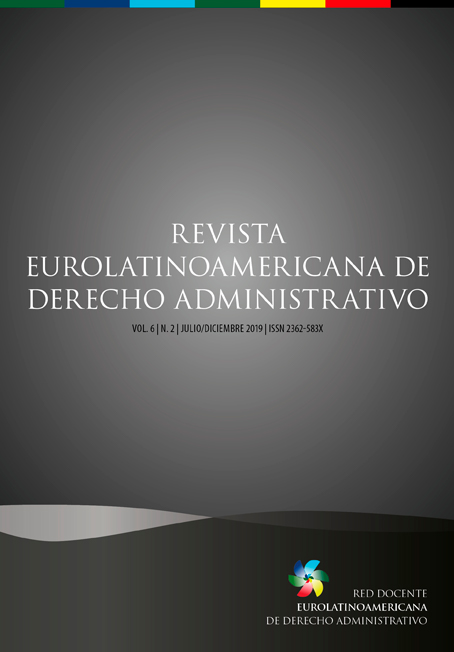Recapturing the fundamental social right to education within the context of punitive incarceration through administrative law
DOI:
https://doi.org/10.14409/redoeda.v6i2.9108Keywords:
education, persons deprived of liberty, punitive incarceration, obstacles, legalityAbstract
We will address the right to education within the context of punitive incarceration with the objective of demonstrating that, in these circles, it comes to be viewed as a “benefit”. This methodology consists of an analysis of the “pathologies” of the system. We will begin with a dogmatic abstract study that allowed us to conclude that the “stimulus” installed in Argentina’s law is unconstitutional because it is unreasonable. Then, after warning of indications revealing failures in this system, we present field research from the University Education in Prisons Program in our University, through interviews with its members and a visit to a collegiate classroom in the Coronda Penal Institution where we spoke with students. In the field study, we proved our suspicions to be true and learned of the bureaucratic obstacles inherent in the penal system that are faced by students deprived of their liberty. With this, we came to confirm that it is not solely an issue of normative deviations, but also that correlations are present in its application. Finally, we conclude with the necessity of overcoming the obstacles at hand and, with purposeful intentions, think of ways to overcome them.
References
GUTIÉRREZ, Mariano Hernán. El Jardín de los Senderos que se Entrecruzan: Las dificultades de los garantistas para entender la educación como derecho. Dossier: Cuestiones en Línea, Buenos Aires, vol. 1, n. 35, p. 29-44, 2012.
RODRIGUEZ-ARANA MUÑÓZ, Jaime. El Derecho Fundamental a la Buena Administración en la Constitución Española y en la Unión Europea. Revista Eurolatinoamericana de Derecho Administrativo, Santa Fe, vol.1, n.2, p.73-93, jul./dic., 2014.
SCARFÓ, Francisco José; AUED, Victoria. El Derecho a la Educación en las Cárceles: Abordaje situacional. Aportes para la Reflexión sobre la Educación como Derecho Humano en Contextos de la Cárcel. Revista Eletrônica de Educação, São Carlos, vol. 7, n. 1, p. 88-98, 2013.
TOMASEVKSI, Katarina. Manual onrights-basededucation: global human rightsrequerimentsmade simple. Bangkok: UNESCO, 2004.
ZAFFARONI, Eugenio R. La Cuestión Criminal. 5a ed. Bs.As.: Planeta, 2013.
Downloads
Published
How to Cite
Issue
Section
License
Authors who publish in this Journal agree to the following terms:
- Authors retain copyright and grant the Journal of Constitutional Research the right of first publication with the article simultaneously licensed under the Creative Commons - Attribution 4.0 International which allows sharing the work with recognition of the authors and its initial publication in this Journal.
- Authors are able to take on additional contracts separately, for non-exclusive distribution of the version of the paper published in this Journal (eg.: publishing in institutional repository or as a book), with a recognition of its initial publication in this Journal.
- Authors are allowed and encouraged to publish their work online (eg.: in institutional repositories or on their personal website) at any point before or during the submission process, as it can lead to productive exchanges, as well as increase the impact and the citation of the published work (see the Effect of Open Access).



























.png)





